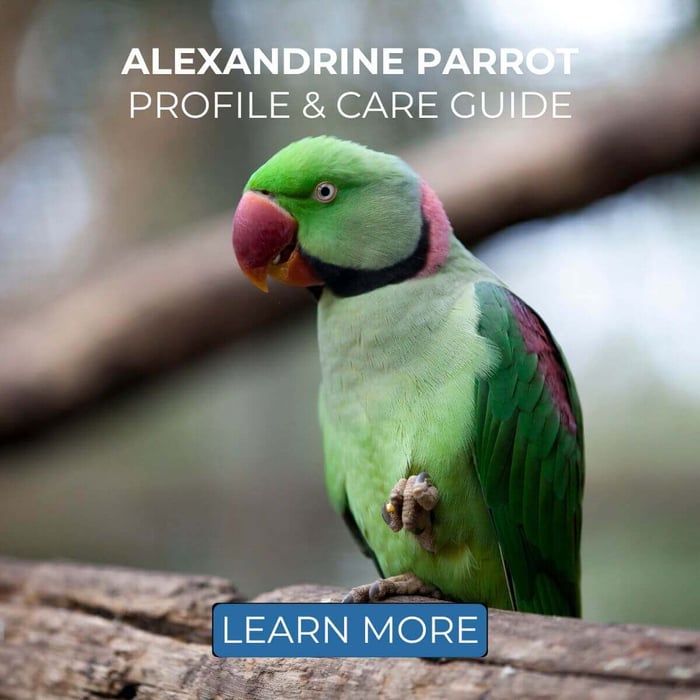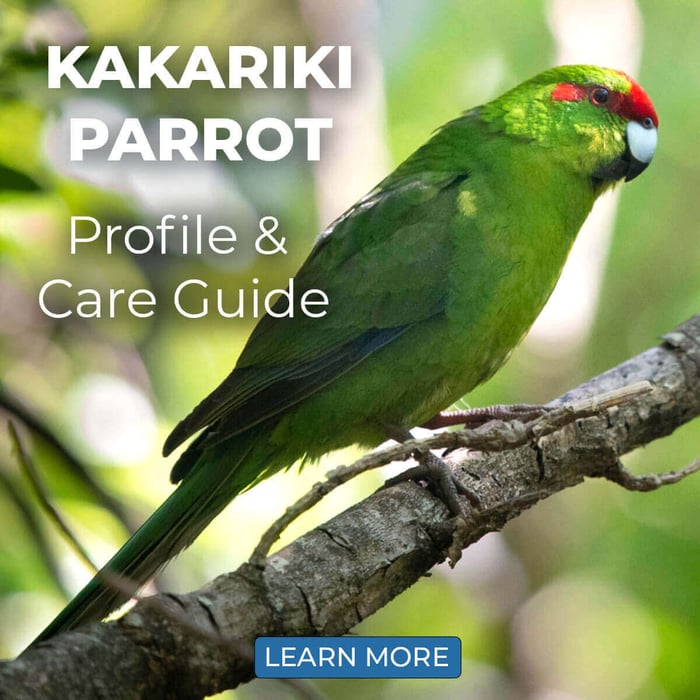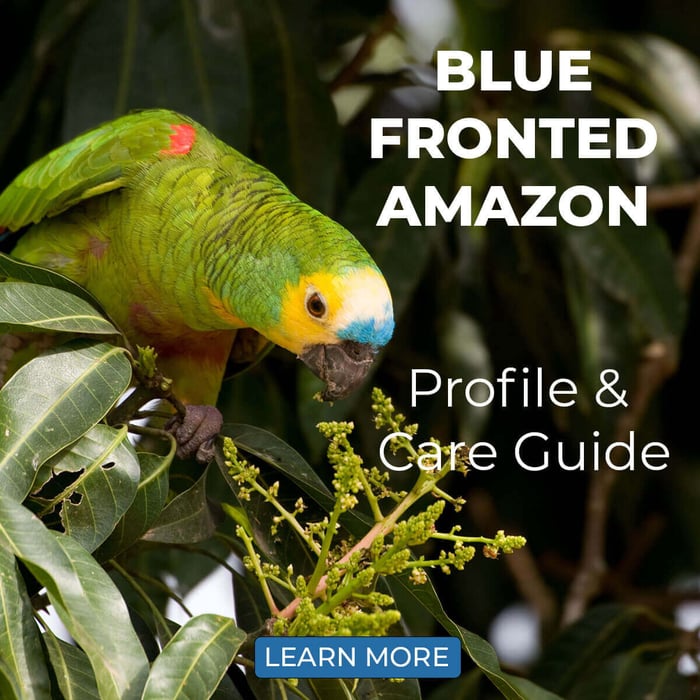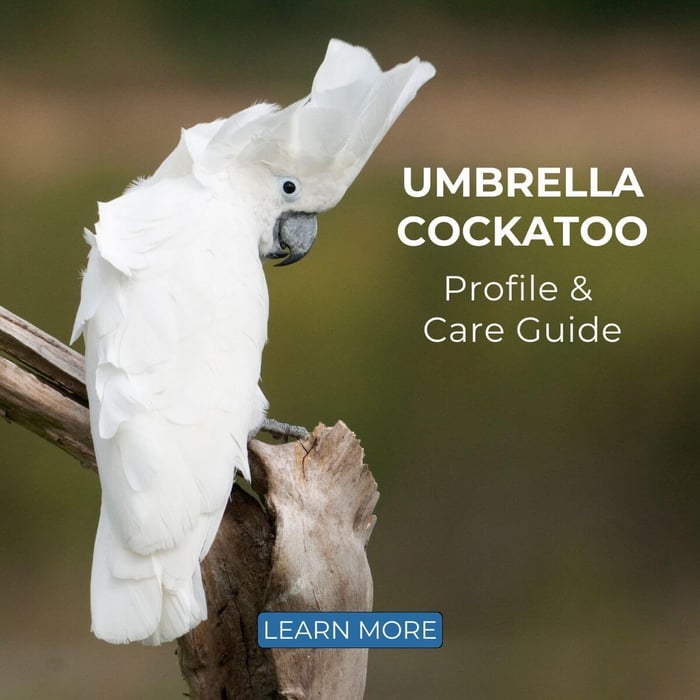Quaker Parrot (Monk Parakeet) - Profile & Care Guide
The Quaker parrot is a beautiful, fun parrot that makes for a great household pet. Its inquisitive nature makes it an attractive choice for many. If given the attention it desires, a quaker can make for a very affectionate companion.
| Common name: | Quaker Parrot (Monk Parakeet) |
| Latin name: | Myiopsitta monachus |
| Length: | 29 cm (11.3 in) |
| Weight: | 127-140g (4.4-4.9 oz) |
| Life Span: | 25 years |
| Origin: | Subtropical regions in South America |
| Noise Level: | Variety of shrill screeches, squawks and chatter |
NATURAL HABITAT
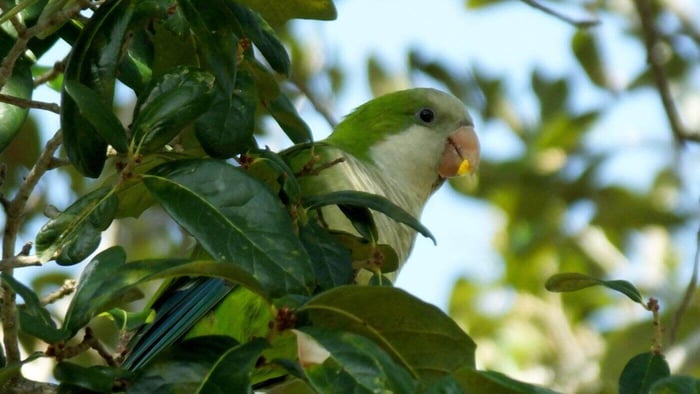
The Quaker parrot, native to Argentina, Brazil, and Uruguay, is a prevalent species in its natural habitat. These birds are often considered agricultural pests in their countries of origin due to their penchant for farmers' crops.
Unlike many other parrot species, Quakers construct nests instead of using cavities or holes in trees. These nests are rather unique, as they tend to build large "complexes" where multiple pairs can cohabit and breed. All occupants collaborate in maintaining the cleanliness of their "apartment" building and safeguarding it against predators.
Each pair of Monk Parakeets has a private entrance to the nest, which can expand to over 1 meter in diameter. They will fiercely defend their home, even against other Quakers.
The natural diet of the Quaker parrot includes flowers, tree bark, and fresh seeds. During the breeding season, they consume small insects like caterpillars to supplement their protein intake.
INVASIVE SPECIES
The Quaker parrot's adaptability has led to escaped individuals thriving in urban environments. In these settings, invasive flocks can create significant noise disturbances, compete with native species for food, and even damage electrical infrastructure with their sizable nests.
This parakeet has become a global concern, establishing a lasting presence in many European countries, as well as in North America. Large populations often originate from just a few birds that have escaped or been released from the pet trade.
Owing to the species' ability to decimate entire crops and its invasive nature, the Quaker parrot has been declared illegal to own in numerous US states and other countries. In places where it is legal to keep a Quaker parrot, certain regulations may apply, such as mandatory wing clipping. Something to keep in mind!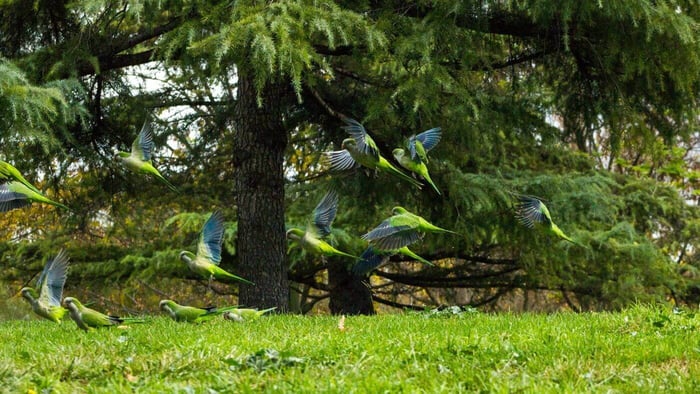
INTELLIGENCE & PERSONALITY
Monk Parakeets are known for their confidence and loyalty. Many owners describe their birds as highly intelligent, entertaining, and engaging. There's never a dull moment when there's a Quaker around! When a well-socialized parrot is allowed out of its cage, it will usually want to stay close to its caretaker at all times. Quaker parrots often form a strong bond with one individual, but they can still make reasonably good family birds.
Assertive by nature, Monk Parakeets will clearly express their dislike if something doesn't suit them. Children should always be supervised around these birds (and parrots in general), as they may occasionally bite if they feel threatened. In some instances, Monk Parakeets can become overly protective and aggressive towards people approaching their cage. Territorial behaviour is especially common during the spring breeding season.
Intrigued by all sorts of objects, Monk Parakeets' curiosity may be attributed to their nest-building instincts. They enjoy playing with household items and retrieving various items. Try giving your building materials like popsicle sticks.
TALKING ABILITY
Monk Parakeets can often be heard conversing or practising their vocabulary on their own. Do keep in mind that all parrots are loud: if they disagree with something or desire attention, they will scream for attention. Most of the sounds they make, however, are typical chatter.
FEEDING GUIDE
It's important to feed your Quaker parrot a high-quality pellet diet as a staple, supplemented with a varied seed mix. Additionally, incorporating all sorts of fresh vegetables into their diet on a daily basis is crucial. Fruits should also be offered regularly.
To prevent mould, be sure to remove any uneaten fresh food after a maximum of 24 hours. Avoid feeding excessive amounts of fattening seeds, such as sunflower seeds and peanuts, as this can lead to obesity and fatty liver disease.
Calcium is the only necessary supplement required for an adequately fed Quaker parrot. You can introduce calcium into their diet by means of a cuttlebone or calcium block. It's crucial to ensure that your Quaker gets enough vitamin A, which is found in red and orange fruits and vegetables.
Never feed chocolate or avocado to your Quaker parrot, as these foods are highly toxic to birds. Always provide fresh, clean water and wash food and water dishes daily.
To promote optimal physiologic use of the calcium you provide your bird, it should be exposed to UVB light for at least 3-4 hours a day. Placing the cage outside when it's warm can help achieve this, though make sure shade and water are available.
HOUSING
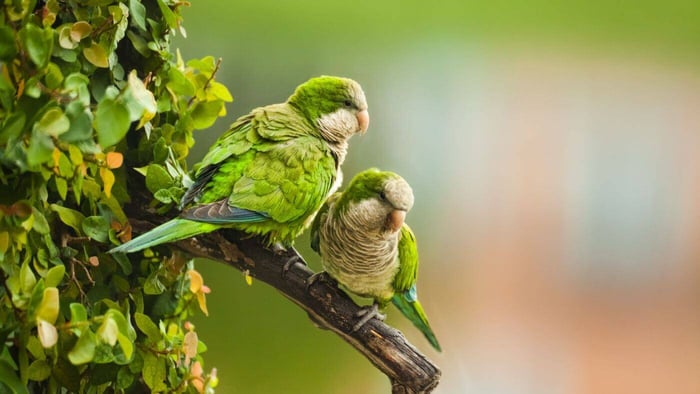
Monk Parakeets need a clean, warm, light and mentally stimulating environment to thrive. A wrought-iron parrot cage, free of rust and chips, is the best home for a pet Quaker parrot. The cage should be as large as your home allows but at least 24" x 30" x 24" in size. Bar spacing should be 1/2" to 5/8". Horizontal bars are ideal, as they allow your bird to climb.
Place the cage in a quiet area away from direct sunlight, and make sure it's in a family-centred and busy room to make your Quaker feel like a part of the flock. Don't forget to spend plenty of time training and engaging with your feathered pet!
Quaker parrots enjoy a variety of toys, and it's important to provide them with different items to play with. Adding new toys regularly can reduce boredom, a common problem in pet parrots. Your Quaker should have at least three different types of toys available in its cage at all times. Swings, foraging toys, plastic puzzle toys, and more help keep their smart brains busy.
Allow your QUaker parrot out of its cage for at least a few hours daily. A play stand on top of the cage makes an excellent place for your bird to hang out while it's out.
Since Monk Parakeets have strong nest-building instincts, you can add some sticks or weaving material to the cage. Be aware that they may also try to build a nest using other objects, so it's important to supervise them when they're out of their cage.
FEATHER PLUCKING & COMMON ISSUES
Feather plucking in Monk Parakeets can be caused by a variety of factors, including endocrine or liver disease, allergies to food and other environmental factors, or lack of (mental) stimulation.
It's also important to identify whether your bird suffers from Quaker Mutilation Syndrome. This involves the parrot not only plucking its feathers but also beginning to mutilate the flesh on its chest, wing webs, and thighs. A veterinarian can help diagnose these issues and will be able to guide you through the process of nursing your Quaker back to health.
Aside from these concerns, Monk Parakeets are generally considered pretty hardy. Most health issues in the wild are related to parasites, which shouldn't be a problem for indoor birds. Still, it's important to take your Quaker for a vet check-up on a yearly basis!
FACTS
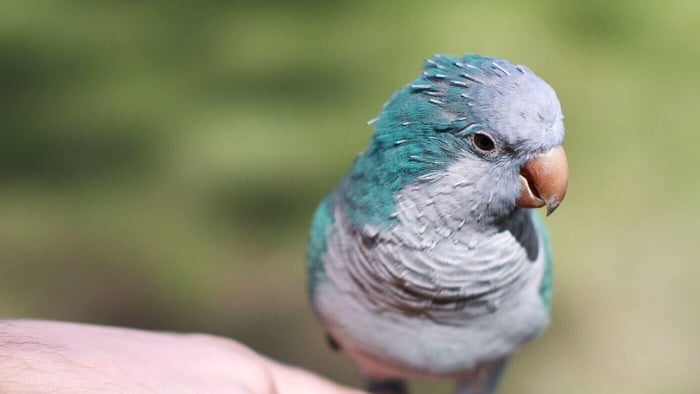
- Thanks to selective breeding, Quaker parrots are now available in a wide range of beautiful colour mutations. All of these variants belong to the same species – Myiopsitta monachus.
- With proper care, Monk Parakeets can live for over 30 years, making them a long-term commitment. Due to their highly social nature and tendency to form strong bonds with their owners, they're not recommended for beginner bird owners.
- In the United States, Quaker parrots are illegal to own or sell in some states due to concerns about their potential impact on native bird populations.
- Monk Parakeets are omnivores and feed on a variety of foods, including fruits, vegetables, seeds, and insects.
- Quaker parrots are also known for their unique personalities. They can be very playful and curious, and they have been known to entertain themselves with toys for hours on end.
- These birds are very intelligent and have been observed using tools in the wild. They have been seen using sticks to move objects, such as rocks or seeds, to get to food.
CONCLUSION
Quaker parrots are delightful companions known for their playful nature and vocal abilities. Proper care and attention are crucial to ensuring their well-being and happiness. By providing a balanced diet, engaging toys, regular social interaction, and a safe environment, you can create a nurturing home for your Quaker parrot. Remember to stay informed about their unique needs and behaviours to foster a strong bond and a fulfilling life together. With love and dedication, your Quaker parrot can thrive and bring joy to your life for many years to come.
To view other Parrot Profiles & Care Guides, visit our Alphabetical list of Parrot Fact Sheets by visiting: https://parrotessentials.co.uk/blog/parrot-profiles-care-guides

